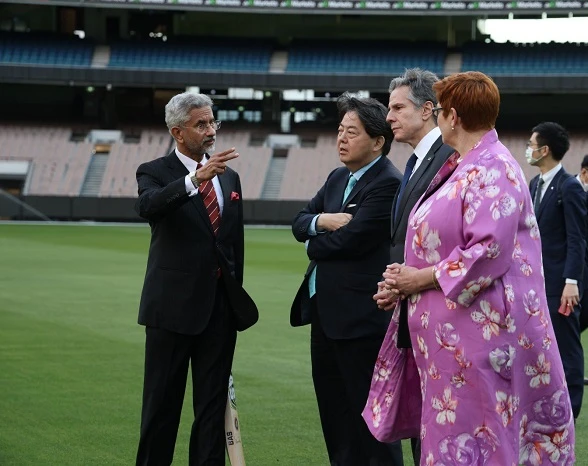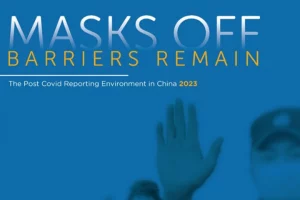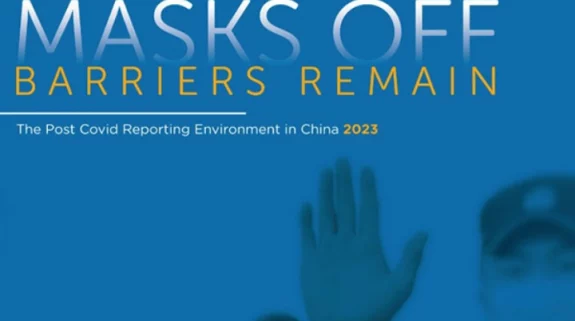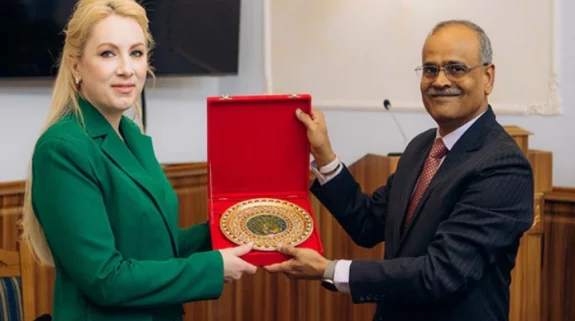Following close on the heels of a statement made by the United States Secretary of State Antony Blinken that China has been "acting more repressively at home and more aggressively in the region", India today slammed its neighbour for disregarding written commitments and amassing forces at the border.
China's aggression in the region continued to be a hot topic at the third in-person meeting of Quad Foreign Ministers in Melbourne on Friday.
"Yes, we had a discussion on India-China relations because it was part of how we briefed each other about what was happening in our neighbourhood. And, it's an issue in which a lot of countries legitimately take interest, particularly if they are from the Indo-Pacific region because the situation has arisen due to the disregard by China in 2020 of written agreements not to amass forces at the border," Jaishankar revealed today.
"When a large country disregards written commitments, I think it's an issue of legitimate concern for the entire international community," he emphasised while addressing a joint media interaction with the Foreign Minister of Australia Marise Payne in Melbourne on Saturday.
Sending a clear message to his Chinese counterpart Wang Yi, the External Affairs Minister said that Beijing's frequent criticism of the Quad partnership between the United States, Australia, Japan and India will not make the powerful grouping less tenable.
"All four of us yesterday – the two of us and Blinken (US Secretary of State Antony Blinken) and Hayashi (Japanese Minister for Foreign Affairs Hayashi Yoshimasa) as well – made that point that we are here to do positive things. We are here to contribute to the peace, prosperity, and stability of the region. So, our record, our actions and stances is fairly clear and by criticising it repeatedly, it doesn't make us less credible," he said.
China has maintained that the grouping is subservient to and serves the Indo-Pacific strategy with US dominance.
As the top diplomats from India, Australia, Japan and the US went into a huddle Down Under deepening their alliance, Beijing had on Friday said that Quad is "essentially a tool for containing and besieging China to maintain US hegemony".
"I want to stress that as the Cold War is long over, the attempt to forge a so-called alliance to contain China wins no support and leads nowhere. Relevant countries should abandon the antiquated Cold War mentality, correct the wrong approach of bloc confrontation and geopolitical games, and contribute to peace and stability in the Asia-Pacific," Chinese Foreign Ministry spokesperson Zhao Lijian said yesterday.
Jaishankar's comments come even as New Delhi continues to make persistent efforts to improve the situation at the LAC.
Only last week, India had once again told China what to do to normalise New Delhi-Beijing ties while reiterating that the Union Territories of Jammu and Kashmir and Ladakh are an integral part of India and it expects other countries to respect India's sovereignty and territorial integrity.
Replying to a question in Parliament, Minister of State for External Affairs V Muraleedharan had stated that India has taken note of a bridge being constructed by China on Pangong lake in areas that have continued to be under the illegal occupation of China since 1962.
"Government of India has never accepted this illegal occupation," the minister had said while stating that New Delhi's approach is guided by three key principles that both sides should strictly respect and observe the LAC; neither side should attempt to alter the status quo unilaterally; and all agreements between the two sides must be fully abided by in their entirety.
The last round of talks between the Senior Commanders of India and China was held on January 12. They agreed that both sides should follow the guidance provided by their leaders and work for the resolution of the remaining issues at the earliest as this would help in restoration of peace and tranquillity along the LAC in Eastern Ladakh and enable progress in bilateral relations.
The Narendra Modi government had also termed the renaming of some places by China in the Indian state of Arunachal Pradesh "a futile exercise" that will not alter the fact that Arunachal Pradesh has always been, is and will always be an integral part of India.



















